
In an era where environmental sustainability is at the forefront of global concerns, the importance of effective wastewater management cannot be overstated. Sewage Treatment Plants (STPs) are essential for treating wastewater and preventing environmental contamination. Among the various types of STPs available, packaged sewage treatment plants have emerged as a revolutionary solution for both residential and industrial projects. These systems offer numerous environmental benefits, making them a preferred choice for eco-conscious businesses and communities. In this blog, we will explore the environmental advantages of packaged STPs, with a particular focus on SUSBIO ECOTREAT, a product from SUSTAINABLE BIOSOLUTIONS PVT. LTD., and why SUSBIO is considered the best STP company in India for packaged solutions.
The Environmental Benefits of Packaged Sewage Treatment Plants
1. Reduction in Environmental Pollution
At the heart of choosing a prefabricated or packaged STP is the significant impact these systems have on the environment. By treating wastewater at its source, packaged STPs prevent harmful pollutants from entering natural water bodies, thereby protecting aquatic life and preserving water quality. This proactive approach to sewage management is crucial in controlling water pollution, one of the most pressing environmental issues of our time.
2. Conservation of Water Resources
Water scarcity is a growing concern worldwide, and the ability to recycle and reuse treated wastewater is crucial in addressing this issue. Packaged STPs, like SUSBIO ECOTREAT, are highly efficient in treating sewage to a level where the water can be safely reused for non-potable purposes such as irrigation, industrial processes, and toilet flushing. This not only conserves precious freshwater resources but also reduces the demand on municipal water supplies, making these systems essential for sustainable sewage management.
3. Reduction in Carbon Footprint
Traditional sewage treatment plants often require extensive infrastructure and significant energy consumption for operation. In contrast, packaged STPs are compact, prefabricated units that are energy-efficient and require less space. This reduced energy consumption translates into a lower carbon footprint, making packaged STPs a more environmentally friendly option. Additionally, the modular nature of these plants allows for easy transportation and installation, further minimizing environmental impact. This makes SUSBIO a leading prefabricated STP manufacturers.
4. Minimization of Land Use
One of the significant advantages of packaged STPs is their compact design, which requires minimal land for installation. This is particularly beneficial in urban areas where land availability is limited and expensive. By occupying less space, packaged STPs reduce the need for large-scale construction and land disturbance, preserving natural habitats and green spaces. This attribute is especially relevant for domestic STP installations where space is often at a premium.
5. Enhanced Waste Management
Packaged STPs are designed to handle varying levels of wastewater flow, making them suitable for diverse applications, including residential complexes, commercial establishments, and industrial sites. By treating wastewater on-site, these plants contribute to better waste management practices, reducing the burden on centralized treatment facilities and decreasing the likelihood of untreated sewage being discharged into the environment. As a top sewage treatment and wastewater treatment company in India, SUSBIO plays a vital role in advancing these practices.
5. SIMPLICITY AND RELIABILITY
Packaged STPs are known for their ease of installation and operation. With SUSBIO ECOTREAT, the units are pre-engineered and assembled offsite, arriving ready for immediate deployment. This ensures a seamless installation process with minimal downtime. Additionally, these systems are designed to be low-maintenance, requiring less frequent servicing and fewer operational disruptions, which is crucial for ensuring consistent wastewater treatment.
Successful Implementations of Packaged Sewage Treatment Plants: Environmental, Business, and Community Benefits
1. Residential Complexes and Urban Communities
Example: A Large Residential Complex in Mumbai, India
- Setup: A large residential complex, consisting of several high-rise buildings, installed a packaged sewage treatment plant to manage the wastewater generated by its 500+ households.
- Benefits:
- Environmental: The treated water is reused for landscaping, reducing dependency on municipal water supplies. This has led to significant water conservation.
- Business: The complex saved on water bills and demonstrated its commitment to sustainability, attracting environmentally-conscious buyers.
- Community: The local community benefited from reduced environmental pollution and increased awareness of eco-friendly living.
- Benefits of Wastewater Treatment Plant: The installation of this STP highlights the benefits of wastewater treatment plants in reducing water wastage and promoting sustainability within urban communities.
2. Small-Scale Industrial Setup
Example: Textile Manufacturing Unit in Gujarat, India
- Setup: A textile factory producing fabric dyed with various chemicals installed a packaged sewage treatment plant to treat industrial wastewater, which typically contains dyes and chemicals.
- Benefits:
- Environmental: The system removed harmful chemicals, ensuring that only clean water was discharged back into the environment, thus preventing water contamination in nearby rivers.
- Business: The factory avoided hefty fines for non-compliance with environmental regulations, and the treated water was used for cooling purposes within the facility, lowering operational costs.
- Community: The surrounding community experienced improved water quality in local bodies, which previously suffered from industrial waste discharge.
- Benefits of Wastewater Treatment Plant: The benefits of wastewater treatment plants are evident in industrial settings like this, where they help reduce harmful discharges and ensure cleaner local ecosystems.
3. Commercial Complexes
Example: IT Park in Bangalore, India
- Setup: An IT park, home to multiple office buildings, installed a modular packaged STP to treat the wastewater from thousands of employees.
- Benefits:
- Environmental: The treated wastewater was used for irrigation in the park’s green spaces, reducing reliance on external water sources and maintaining the park’s eco-friendly image.
- Business: The park reduced operational costs and attracted environmentally-conscious businesses, enhancing its reputation as a sustainable hub.
- Community: The system helped conserve municipal water supplies, benefiting the surrounding neighborhoods.
- Benefits of Wastewater Treatment Plant: The benefits of wastewater treatment plants in commercial setups include reduced operational costs, improved sustainability, and better resource management.
4. Hotel & Hospitality Industry
Example: 5-Star Hotel in Goa, India
- Setup: A 5-star hotel located near the coastline installed a packaged sewage treatment plant to treat wastewater from guests and operational areas, ensuring it complied with local environmental regulations.
- Benefits:
- Environmental: The treated wastewater was used for landscaping and irrigation in the hotel grounds, as well as for flushing toilets, reducing freshwater consumption.
- Business: The hotel improved its sustainability rating and attracted more eco-conscious tourists, enhancing its marketability.
- Community: The system ensured that the hotel’s operations did not pollute the local water sources, preserving the environment for both locals and tourists.
- Benefits of Wastewater Treatment Plant: The benefits of wastewater treatment plants extend to the hospitality industry by promoting eco-friendly operations and ensuring water conservation.
5. Municipal Wastewater Treatment for Small Towns
Example: Small Town in Tamil Nadu, India
- Setup: A small town facing water scarcity installed a packaged sewage treatment plant for its residents to treat domestic sewage.
- Benefits:
- Environmental: The plant treated wastewater and returned it to the environment after purification, ensuring that the local water resources were not polluted.
- Business: The town reduced its water bills by using treated water for non-potable purposes like irrigation and street cleaning.
- Community: The local population had better access to clean water, leading to improved public health and sanitation.
- Benefits of Wastewater Treatment Plant: The benefits of wastewater treatment plants are seen in municipal systems where they improve water quality and reduce costs, making them essential for small towns.
6. Campus Wastewater Treatment in Educational Institutions
Example: University Campus in Pune, India
- Setup: A university campus implemented a packaged STP to treat the wastewater from hostels, cafeterias, and administrative buildings.
- Benefits:
- Environmental: The treated water was used to irrigate the campus gardens and lawns, reducing the university’s dependence on city water supplies.
- Business: The university saved on water costs and demonstrated environmental stewardship, which enhanced its reputation as a sustainable educational institution.
- Community: Students, faculty, and local residents benefited from a cleaner environment, with reduced pollution in the nearby water bodies.
- Benefits of Wastewater Treatment Plant: The benefits of wastewater treatment plants in educational institutions include water conservation and the promotion of sustainability.
7. Industrial Parks and Manufacturing Facilities
Example: Food Processing Unit in Punjab, India
- Setup: A food processing plant in Punjab installed a packaged sewage treatment plant to manage the wastewater from food production, which included organic matter and chemicals.
- Benefits:
- Environmental: The system treated the wastewater to remove harmful substances and returned clean water to nearby water bodies, reducing contamination.
- Business: The plant adhered to stringent environmental standards, avoiding penalties, and used treated water in non-production activities, which cut operational costs.
- Community: The surrounding farming community benefited from the cleaner water bodies, ensuring better irrigation for crops.
- Benefits of Wastewater Treatment Plant: The benefits of wastewater treatment plants are evident in manufacturing, where they help mitigate pollution, ensure compliance, and improve resource efficiency.
These examples illustrate how packaged sewage treatment plants (STPs) provide a wide range of benefits, from environmental conservation to business cost reduction and improved community well-being. By implementing such systems, industries, residential complexes, and municipalities can contribute to a more sustainable future while also enjoying long-term economic advantages.
Additionally, the benefits of wastewater treatment plants go beyond just environmental protection—they contribute to business cost savings, regulatory compliance, and community health, making them a smart investment for various urban and industrial setups.
Best Packaged Sewage Treatment Plant (STP)- SUSBIO ECOTREAT

SUSTAINABLE BIOSOLUTIONS PVT. LTD. (SUSBIO) has emerged as a leader in the field of sewage treatment, offering cutting-edge solutions that prioritize environmental sustainability. At the heart of SUSBIO’s offerings is the SUSBIO ECOTREAT, a packaged sewage treatment plant that stands out for its innovative design and exceptional environmental performance.
1. Advanced Treatment Process
SUSBIO ECOTREAT employs a dual treatment process that combines physical and biological methods to achieve superior wastewater treatment. This advanced process ensures the effective removal of organic and inorganic contaminants, resulting in high-quality treated water that meets stringent environmental standards. This process is critical in applications involving domestic sewage treatment plants and sewage water treatment plants.
2. Energy Efficiency
Energy efficiency is a key feature of SUSBIO ECOTREAT. The plant is designed to operate with minimal energy consumption, thanks to its state-of-the-art components and optimized treatment process. This not only reduces operational costs but also contributes to a lower carbon footprint, aligning with global sustainability goals.
3. Prefabricated Design for Easy Installation
One of the standout features of SUSBIO ECOTREAT is its prefabricated design, which allows for quick and hassle-free installation. The modular units are manufactured in a controlled environment and then transported to the site, where they are assembled with minimal disruption. This efficient process reduces construction waste and ensures that the plant is up and running in no time, reinforcing SUSBIO’s position as a leading packaged STP manufacturing company.
4. Versatility and Adaptability
SUSBIO ECOTREAT is designed to be versatile and adaptable to various settings, from small residential communities to large industrial complexes. The plant’s modular design allows for easy scalability, ensuring that it can meet the wastewater treatment needs of any project, regardless of size or complexity. This versatility makes SUSBIO a top sewage treatment plant manufacturer in India.
The Role of Sewage Treatment in Achieving SDGs
Environmental sewage treatment systems are vital in achieving several United Nations Sustainable Development Goals (SDGs). They support SDG 6: Clean Water and Sanitation and SDG 13: Climate Action, while contributing to other global goals.
1. Clean Water and Sanitation (SDG 6)
- Improved Water Quality: Environmental sewage treatment systems remove harmful pollutants, ensuring safe water for drinking and agriculture.
- Water Recycling: Treated wastewater is reused for irrigation and industrial purposes, conserving freshwater.
- Sanitation and Disease Prevention: Proper sewage treatment reduces waterborne diseases, improving public health.
2. Climate Action (SDG 13)
- Reduction of Greenhouse Gas Emissions: Environmental sewage treatment systems capture methane, reducing greenhouse gas emissions and using it for energy.
- Energy Efficiency: Adoption of renewable energy technologies (e.g., solar power) makes sewage treatment more sustainable.
- Waste-to-Energy: Converting organic waste into energy supports clean energy production.
3. Life on Land (SDG 15)
Sewage treatment prevents water pollution that could harm land ecosystems, promoting biodiversity and ecosystem health.
4. Decent Work and Economic Growth (SDG 8)
Sewage treatment creates jobs in construction, operation, and maintenance while promoting sustainable economic growth through green technologies.
5. Industry, Innovation, and Infrastructure (SDG 9)
Sewage treatment fosters sustainable infrastructure and innovation through efficient wastewater management and resource recovery.
Environmental sewage treatment systems play a critical role in achieving SDGs 6 and 13, along with several other global goals. By improving water quality, reducing emissions, and supporting sustainable practices, sewage treatment contributes to a healthier, more sustainable future.
Why Choose Packaged STPs Over Conventional Sewage Treatment Plants?
Packaged Sewage Treatment Plants (STPs) offer numerous advantages of sewage treatment plants over traditional systems like activated sludge systems, particularly in terms of efficiency, cost-effectiveness, and ease of deployment.
1. Compact and Modular Design
Packaged STPs are compact, modular, and easy to install, making them ideal for small spaces or remote locations. Unlike conventional systems, which require large areas and extensive infrastructure, packaged STPs are pre-assembled for quick deployment, offering advantages of sewage treatment plants in tight spaces.
2. Lower Initial Investment
Packaged STPs have a lower upfront cost compared to conventional systems. They come prefabricated, reducing installation time and labor costs, whereas conventional systems require significant construction and higher operational costs, providing a clear advantage in cost-effective sewage treatment.
3. Low Maintenance
Packaged STPs are easy to maintain, with automated operations that require minimal human intervention. In contrast, conventional systems need constant monitoring and regular repairs, adding to the long-term costs. This low-maintenance feature is one of the key advantages of sewage treatment plants.
4. Quick Deployment and Scalability
Packaged STPs can be set up quickly, making them ideal for urgent projects or temporary needs. They are also easily scalable, allowing for quick expansion as demand grows, whereas expanding conventional systems involves time-consuming and costly infrastructure changes. This quick deployment is one of the advantages of packaged STPs.
5. Eco-Friendly and Energy Efficient
Packaged STPs are generally more energy-efficient and eco-friendly due to their optimized processes and use of solar power or biogas recovery. Conventional systems are energy-intensive, leading to higher operational costs and environmental impact. This energy efficiency is one of the many advantages of sewage treatment plants that prioritize sustainability.
Packaged STPs vs. Conventional STPs
Packaged STPs offer cost-effective, low-maintenance, and environmentally friendly solutions for wastewater treatment, making them an excellent choice for small to medium-scale applications. Their quick deployment and scalability make them a sustainable alternative to conventional sewage treatment systems, further emphasizing the advantages of sewage treatment plants.
Why SUSBIO is the Best STP Company in India for Packaged Solutions
SUSTAINABLE BIOSOLUTIONS PVT. LTD. has built a reputation as the best STP company in India, particularly for packaged sewage treatment plants. Several factors contribute to SUSBIO’s leadership in this field:
1. Expertise and Innovation
SUSBIO’s team of experts brings a wealth of knowledge and experience in wastewater treatment, ensuring that their products are at the forefront of innovation. The company’s commitment to research and development has led to the creation of state-of-the-art solutions like SUSBIO ECOTREAT, which sets new standards in environmental sustainability.
2. Commitment to Quality
Quality is a cornerstone of SUSBIO’s operations. The company adheres to strict quality control measures at every stage of the manufacturing process, ensuring that each unit of SUSBIO ECOTREAT meets the highest standards of performance and reliability. This focus on quality has solidified SUSBIO’s standing as a top STP manufacturer and supplier in India.
3. Customer-Centric Approach
SUSBIO is dedicated to providing exceptional customer service, from the initial consultation to post-installation support. The company’s customer-centric approach ensures that clients receive tailored solutions that meet their specific needs, backed by ongoing technical assistance and maintenance services.
4. Sustainable Practices
SUSBIO is deeply committed to environmental sustainability, as reflected in the design and operation of its products. The company’s focus on energy efficiency, water conservation, and waste minimization makes it a leader in the field of green technologies, cementing its role as a premier sewage treatment and wastewater treatment company in India.
CONCLUSION
Choosing a prefabricated or packaged STP like SUSBIO ECOTREAT is not just a business decision—it is a commitment to environmental stewardship. By opting for these advanced systems, you are actively contributing to the reduction of water pollution, the conservation of vital water resources, and the overall protection of our planet’s ecosystems. Every drop of treated water that is safely returned to the environment or reused in another capacity helps in preserving our natural resources for future generations.
SUSTAINABLE BIOSOLUTIONS PVT. LTD. is proud to be at the forefront of this environmental movement, offering top-of-the-line wastewater treatment solutions that are as efficient as they are sustainable. As the best STP company in India, SUSBIO’s dedication to innovation and quality ensures that their products not only meet but exceed the expectations of those who are serious about environmental protection. Whether you are managing a residential complex, a commercial property, or an industrial facility, choosing SUSBIO ECOTREAT means investing in a cleaner, greener future.
In conclusion, the environmental and economic benefits of prefabricated/packaged STPs make them an indispensable tool in the fight against water pollution and resource depletion. By integrating these systems into your operations, you are not only ensuring compliance with environmental regulations but also playing a crucial role in safeguarding our planet’s water resources. Make the smart, sustainable choice today—choose SUSBIO ECOTREAT and join the growing community of eco-conscious organizations dedicated to making a positive impact on the environment.


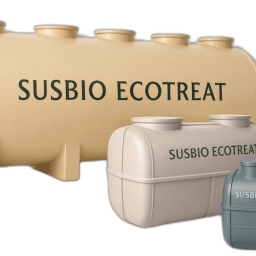
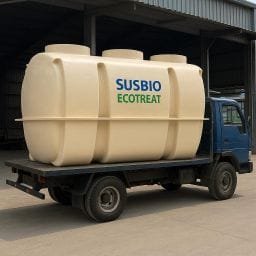

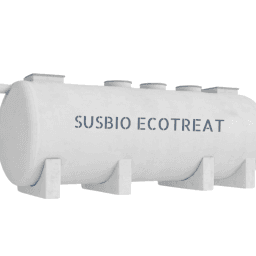
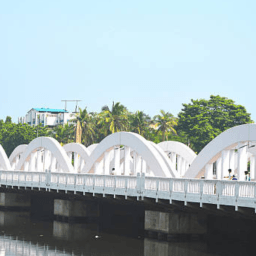
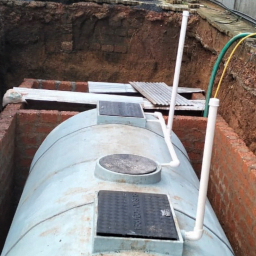

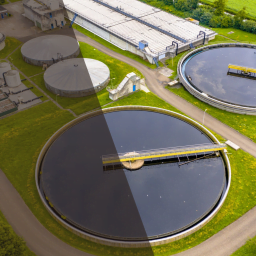
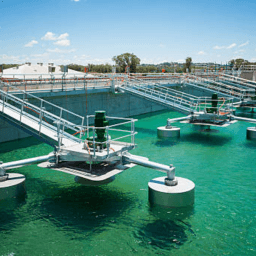






[…] 0 By Akshat Tyagi Latest Blogs August 6, […]
[…] that prioritize both performance and sustainability. The SUSBIO ECOTREAT is a packaged STP that embodies the latest advancements in wastewater treatment technology. Its design ensures […]